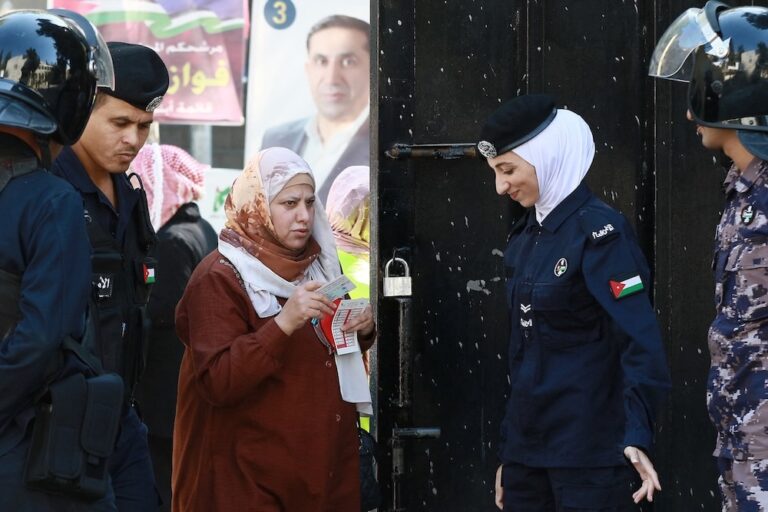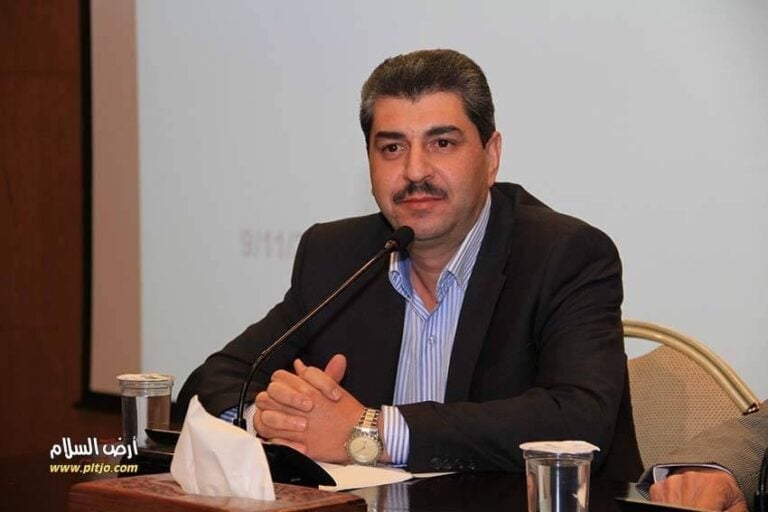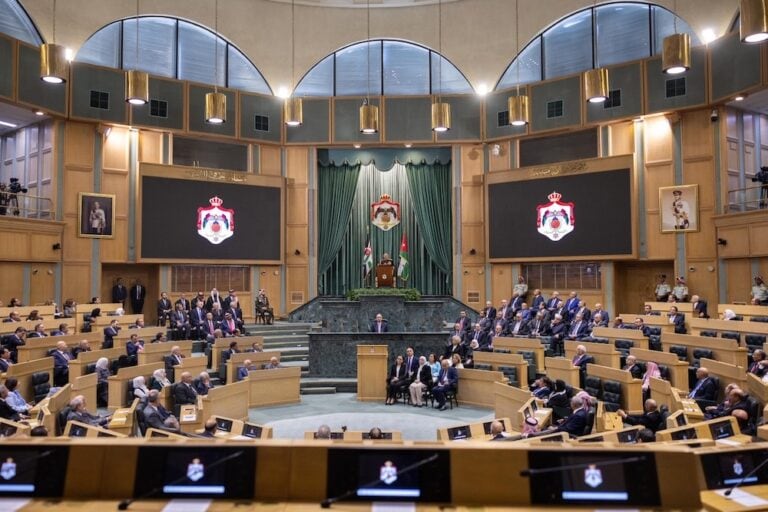The health of several Jordanian activists has deteriorated as a result of a hunger strike they upheld for more than six days to protest their continued detention.
UPDATE: Jordanian authorities have decided to release the 19 detainees belonging to the popular reform movement in response to local and international pressure. (ANHRI, 24 October 2012)
(ANHRI/IFEX) – Cairo, 20 October 2012 – ANHRI calls on the Jordanian authorities to immediately release 19 political detainees who were arrested between 15 July and 4 October 2012.
Many of Jordan’s towns and cities came alive on 19 October as mass demonstrations were organized demanding the release of political activists belonging to a cluster of popular reform movements that are challenging the government. At the same time, some detained activists were transferred to a hospital for examination due to deteriorating health as a result of a hunger strike they upheld for more than six days to protest their continued detention. The detainees participating in the hunger strike include activists Abdullah Mahadeen and Tariq Jawabra, as well as four others.
According to a message leaked by Jawabra from his prison cell and delivered via his wife, the prison authorities transferred him to the hospital in a humiliating manner, handcuffing him and draping a black mask over his face. Once the medical examination was over, he was transferred back to his solitary cell.
The clusters of political movements in Jordan are known as “Hirakat”. Their main objective is government reform and their presence has increased remarkably since the start of last year, coinciding with the Arab Spring revolutions. Their strongest demands are to reduce the almost-absolute powers of the king regarding the constitution, to grant more power to the elected parliament with guarantees of integrity in parliamentary elections and to stop the spread of corruption in government bodies.
One such movement, the oldest and largest, is based in Tafila, a city located in southern Jordan. Eight of its activists languish in Jordanian prisons as it is the most targeted of all the movements.
Despite legal amendments announced in October 2011 that limit the jurisdiction of Jordan’s state security apparatus to the investigation of terrorism and drug crimes, Jordanian authorities are still using illegitimate techniques against activists, even when they are demonstrating peacefully. Since 15 July, Jordan has witnessed a campaign of arrests targeting activists. To justify the arrests, the state security forces have used charges against the activists that include “inciting sectarian strife”, “threatening civil peace”, “working to overthrow the regime” and “insulting the king or queen”.
“Jordan should respond to its people’s demands for the immediate release of the political prisoners and must stop the prosecution of the activists via the use of fabricated charges against them because of their involvement in peaceful demonstrations,” said ANHRI.
ANHRI stressed that there has been a severe deterioration in the Jordanian authorities’ position on freedom of opinion and freedom of expression, as demonstrated by the activists’ arrests and amendments to the Publications Law that impose unfair restrictions on press and Internet freedoms.
ANHRI calls on the international community to exert pressure on Jordan’s authorities to adhere to their freedom of expression and press freedom commitments as signatories to international treaties and conventions.


